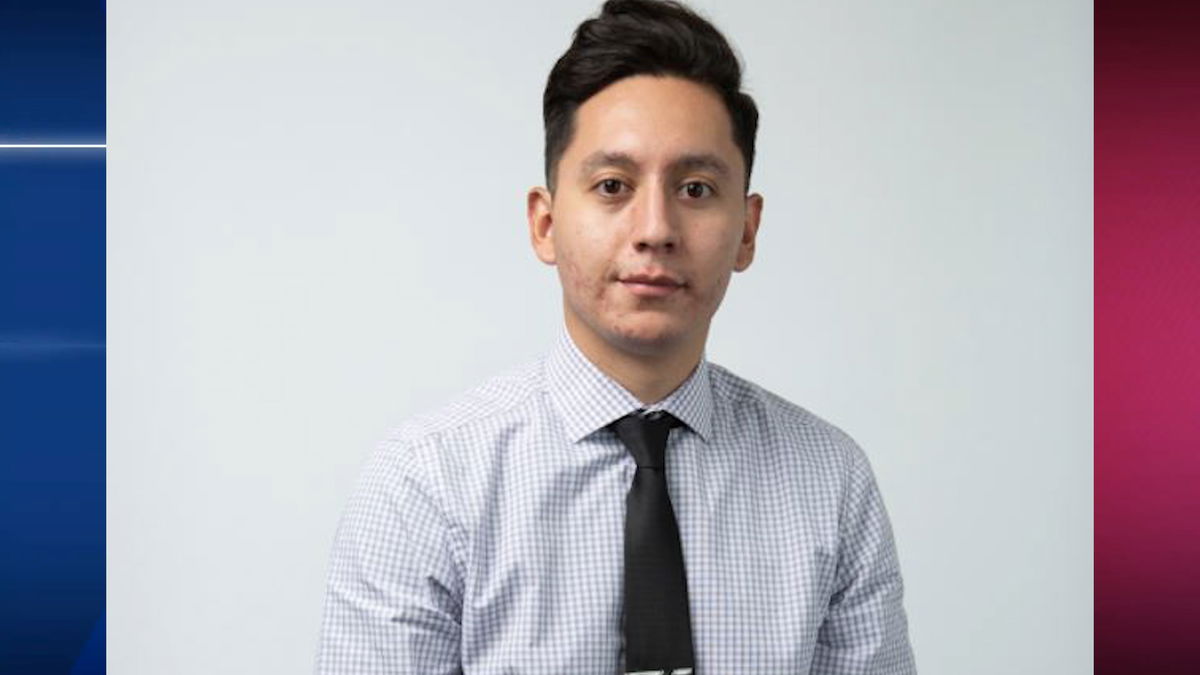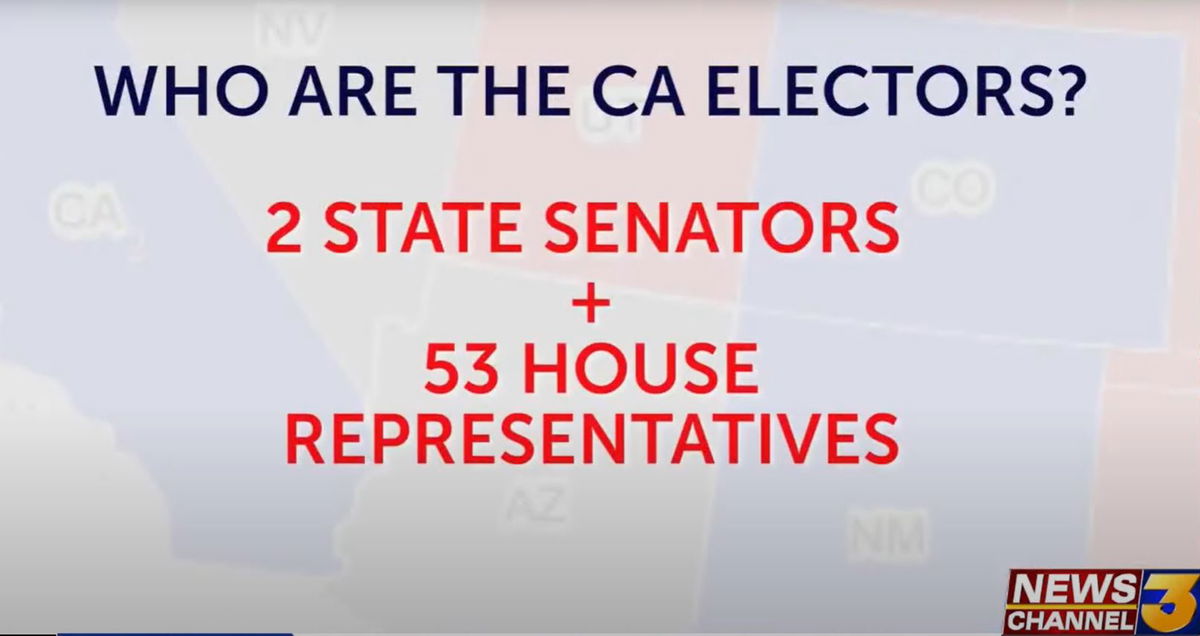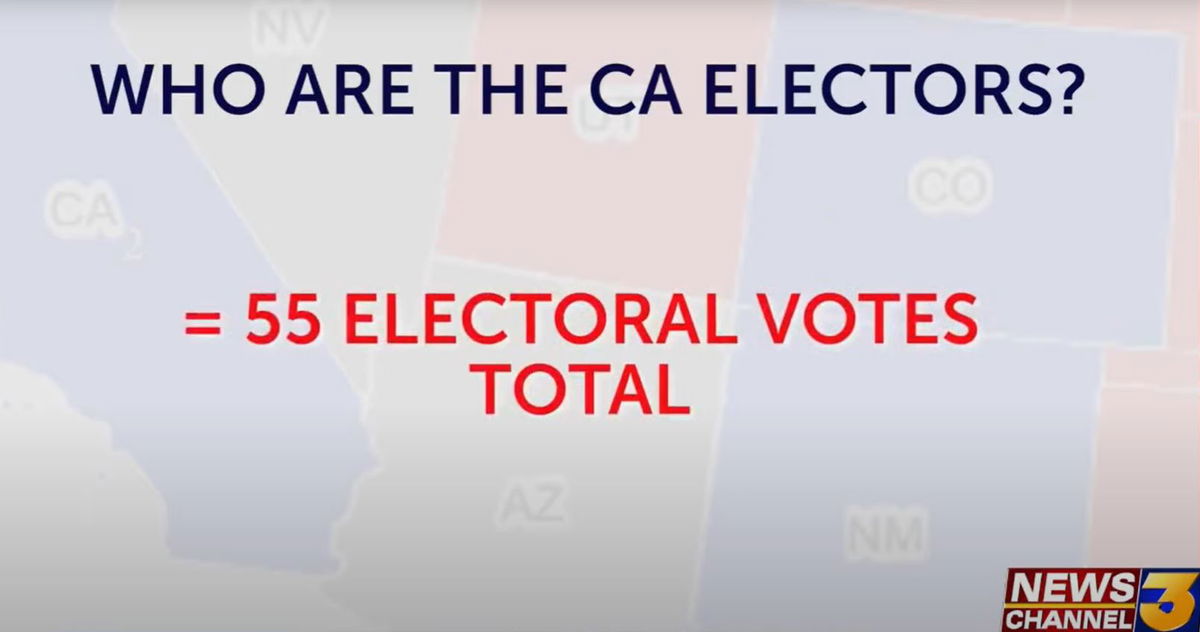Coachella man, 23, prepares to cast ballot as a member of Electoral College
Election Day 2020 has come and gone. But, it's not all over just yet. Votes still need to be certified and electors, chosen from each state, will soon meet to cast their votes for President and Vice President of the United States of America. Have you ever wondered just who makes up the Electoral College?
Among the electors casting votes for the State of California: Augustin Arreola, a 23-year-old first-generation American from Coachella.

Arreola says he was thrilled to get the call from Congressman Dr. Raul Ruiz to let him know that he was selected to be a member of the Electoral College.
"It's an immense honor, words can't explain how I feel but I know it's something that I take very seriously and never in 100 years would have imagined would have been in this situation," Arreola said, "Or, in this position to carry out such a historic vote on behalf of my community."
Congressman Dr. Raul Ruiz selected the non-profit worker to join the Democratic Party Presidential Electors in California.
"His story is really a reflection for all the other youth that grew up in humble beginnings that all things are possible in our country, and that dreams really do come true."
Congressman Dr. Raul Ruiz, (D) 36th District
"I understand the importance of this election," Arreola continued, "and for me to be able to participate especially in times like this to have a diverse coalition of voters choose a historic president and an historic vice president is something that to me I can't explain how good it feels to be able to do this."
Dr. Ruiz tells News Channel 3 he chose "a very humble, hardworking person who cares very much about the community."

California is assigned 55 electoral votes, the most of any state. As in most states, the winner of the state popular vote receives every elector. In other words, since the majority of people in California voted for Biden, Biden received all 55 of California’s electoral votes.

In California, each party determines how to select electors. The CA Secretary of State reports that for the Democratic Party, each congressional nominee and each US Senate nominee (determined by the last two elections) designates one elector.
Arreola is voting in Sacramento on December 14.
MORE: The Electoral College: How it works and what happens next
The Electoral College in 2020
The following is an outline of dates pertaining to the Electoral College in the 2020 presidential election. Source: National Conference of State Legislatures
- Spring and Summer 2020: Nomination of Electors. The political parties in each state nominate their electors. Parties and states have different ways of going about this, but a party's presidential electors are generally loyal or consistent party members. The parties want to be sure they can rely on their electors to cast their votes for the party's nominee for president.
- Nov. 3, 2020: Election Day, when voters in each state will select their presidential electors. The names of electors are not on the ballot in most states. Rather, when a voter casts a vote for a presidential candidate, s/he is also casting a vote for the electors already selected by the party of that candidate. If a majority of voters in a state vote for the Republican candidate for president, the Republican slate of electors is elected. If a majority vote for the Democratic candidate, the Democratic slate of electors is chosen.
- Dec. 8, 2020: Deadline for Resolving Election Disputes. All state recounts and court contests over presidential election results must be completed by this date. (3 U.S.C. § 5). For the majority of states the date of certification is the same as for all contests, but in eight states there is a deadline that either directly references 3 USC §5 or uses similar language, requiring that disputes surrounding the selection of presidential electors be resolved in time to meet the “safe harbor” deadline: Indiana, Iowa, New Jersey, North Carolina, Ohio, Tennessee, Texas and Virginia. For detailed information on state post-election processes, please visit this page.
- Dec. 14, 2020: Meeting of the Electors. The electors meet in each state and cast their ballots for president and vice president. Each elector votes on his or her own ballot and signs it. The ballots are immediately transmitted to various people: one copy goes to the president of the U.S. Senate (who is also the vice president of the United States); this is the copy that will be officially counted later. Other copies go to the state's secretary of state, the National Archives and Records Administration, and the presiding judge in the district where the electors meet (this serves as a backup copy that would replace the official copy sent to the president of the Senate if it is lost or destroyed).
- Dec. 23, 2020: Deadline for Receipt of Ballots. The electors' ballots from all states must be received by the president of the Senate by this date. There is no penalty for missing this deadline.
- Jan. 6, 2021: Counting of the Electoral Ballots. The U.S. Congress meets in joint session to count the electoral votes.
- Jan. 20, 2021: Inauguration Day. The president-elect becomes the president of the United States.

